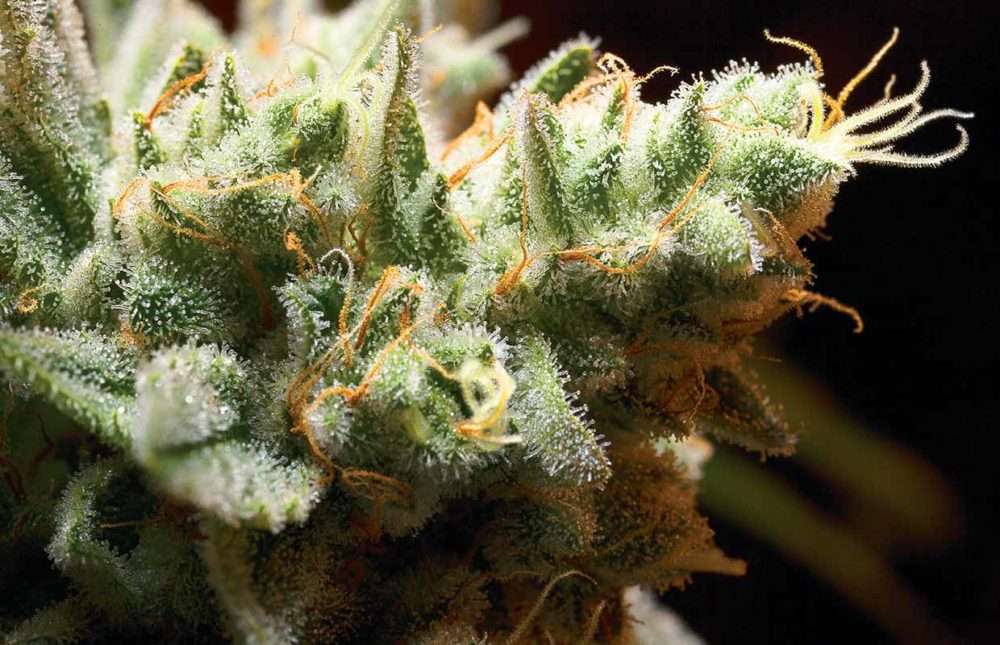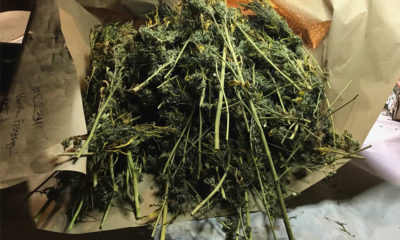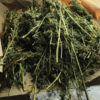Beija Flor Farms: Using Cannabis for Carbon Sequestration
With a name meaning “kiss the flower,” California’s Beija Flor Farms believes cannabis farming can help with carbon sequestration.
Nestled in the Mayacamas Mountain Range in southern Mendocino County sits Jonathan Wentzel’s 1,228-acre farm, soaking in the sun’s radiant beams. Beija Flor Farms (a name which means “to kiss the flower”) may look like it’s just cultivating quality, artisanal cannabis in full sunlight on land that’s been family-owned for generations — but there’s even more behind their lush, organic flowers.
Unlike those cannabis farms that operate in warehouses sucking up electricity, Beija Flor Farms believes in using cannabis farming to mitigate the effects of climate change.
“We have a twofold process: One is the cultivation of cannabis and the other is sequestering carbon on a large scale,” Wentzel says. “Our model is carbon sequestration through cannabis cultivation. What we’re trying to do is cultivate in ways that are non disruptive to the carbon cycling of the plant.”

Jonathan Wentzel (right) joins a Beija Flor Farms worker for a ride through wine vineyards to visit a cannabis garden.
Carbon sequestration can be both a natural and deliberate process that removes CO2 from the atmosphere or diverts it from emission sources. Natural carbon sequestration has been happening for billions of years. Trees, plants, the oceans and the earth act as carbon sinks or sponges that help with preventing erosion, loss of biodiversity and desertification by sucking up and storing carbon dioxide from fossil-fuel emissions. A concentration of cannabis plants like a farm can capture the carbon dioxide in the atmosphere to use in photosynthesis and store it in their roots, branches and leaves to help mitigate or defer global warming and reduce the consequences of climate change.
“It’s really about soil building and terroir, we won’t till the soil for forever,” Wentzel says of his farming practices, which include placing the plants directly in the soil and sourcing all the materials he inputs into the ground from a 50-mile radius around the farm. “It’s really no-till cannabis. We don’t disturb the soil for as many years as possible and that’s the concept of cannabis terroir.”
Wentzel’s foray into cultivation began early at the age of 13 and has since evolved into a career focused on environmentally friendly farming practices with an emphasis on the agrarian model. His close ties to farming and his early exposure to examples of responsible agriculture made a major impact on the fifth generation farmer’s impressive knowledge of the finer points of growing great cannabis.

Cannabis still in its vegetative state catches the light. The outdoor plants at Beija Flor are grown with organic farming techniques.
“I don’t have a degree in plant genetics or bioscience, but the knowledge has been something I have grown up with,” he says, adding that growing cannabis began as a “childhood hobby” for him. “I was introduced to the wine industry when I was young and watched the transformation from traditional farming to organic, which taught me a lot about the damaging effects of some of the things that were regularly spread that were, at one time, considered to be benign.”
Beija Flor introduced their first crop in 2003 and since then, Wentzel’s dedication to producing sungrown, organic cannabis hasn’t wavered a bit. In fact, his hope for the future is that more farms throughout the country begin to assess their environmental impact and move toward more eco-friendly methods.
“California produces 85 percent of the cannabis that is consumed in the country. So, we can go forward and show people by our farms, test results, our breeding and genetic programs that responsible agriculture works,” says Wentzel. “I can’t, in good conscience, cultivate cannabis in a grow room when I know what’s possible.”
Beija Flor’s location in the Mayacamas Mountains is “extremely conducive to cannabis cultivation,” Wentzel says, but he thinks this isn’t sufficient in-of-itself for building an environmentally friendly farm. “I think it’s important to understand that there are more sustainable ways to grow” he says. “We can help educate people who are already carrying out some egregious growing lifestyles to get them to implement practices that promote land stewardship and the agrarian model.”

Jonathan Wentzel overlooks a vineyard of Petite Sirah grapes growing next to Beija Flor’s property in Mendocino.
The company’s approach to growing led to a natural partnership with Flow Kana, a California brand that prides themselves on providing sustainable, sungrown cannabis from farms that focus on producing small batch, boutique strains. As a fan of Flow Kana’s business model, Wentzel has considered it an honor to be connected with them.
For this year’s harvest, the farm grew around 400 pounds with about 18 different strains. But not all of it was provided to the public, as some of it was Wentzel playing around with genetics and experimenting with breeding programs. For Beija Flor, it’s all about quality, not quantity.
“We’re a small farm and we’re planning to stay a small farm,” Wentzel says. “One of the reasons for that is that I want to show that a small farm can be profitable even when they’re doing carbon sequestration projects. I want people to see that we can make money and still do things the right way.”
California has been known for producing some of the world’s best weed, with particular emphasis on Mendocino County and the region’s undeniable knack for growing indisputably top-notch flower. The abundance of marijuana farms that have been occupying the county’s hillsides and secret forest coves for decades have been the backbone of the area’s rich farming culture that, for some families, can be generations deep. Standing out among the sea of farms can seem like an impossible feat but Beija Flor, with their passion for the plants and the planet, doesn’t have to try hard for their crop to shine.
Originally published in the print edition of Cannabis Now.






















